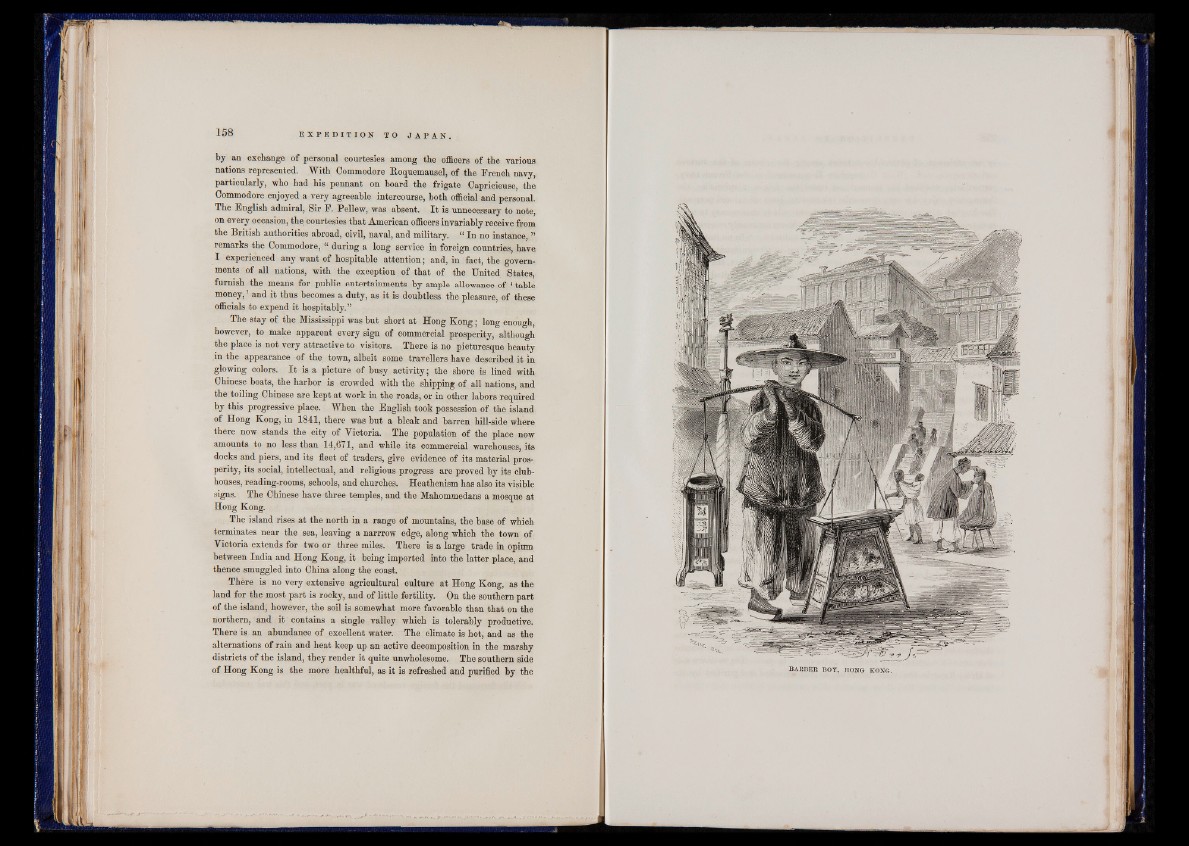
by an exchange of personal courtesies among the officers of the various
nations represented. With Commodore Roquemausel, of the French navy,
particularly, who had his pennant on board the frigate Capricieuse, the
Commodore enjoyed a very agreeable intercourse, both offioial and personal.
The English admiral, Sir E. Pellew, was absent. I t is unnecessary to note,
on every occasion, the courtesies that American officers invariably receive from
the British authorities abroad, civil, naval, and military. “ In no instance, ’!
remarks the Commodore, “ during a long service in foreign countries, have
I experienced any want of hospitable attention; and, in fact, the governments
of all nations, with the exception of that of the United States,
furnish the means for public entertainments by ample allowance of ‘ table
money, ’ and it thus becomes a duty, as it is doubtless the pleasure, of these
officials to expend it hospitably.”
The stay of the Mississippi was but short at Hong Kong; long enough,
however, to make apparent every sign of commercial prosperity, although
the place is not very attractive to visitors. There is no picturesque beauty
in the appearance of the town, albeit some travellers have described it in
glowing colors. I t is a picture of busy activity; the shore is lined with
Chinese boats, the harbor is crowded with the shipping of all nations, and
the toiling Chinese are kept at work in the roads, or in other labors required
by this progressive place. When the English took possession of the island
of Hong Kong, in 1841, there was but a bleak and barren hill-side where
there now stands the city of Victoria. The population of the place now
amounts to no less than 14,671, and while its commercial warehouses, its
docks and piers, and its fleet of traders, give evidence of its material prosperity,
its social, intellectual, and religious progress are proved by its clubhouses,
reading-rooms, schools, and churches. Heathenism has also its visible
signs. The Chinese have three temples, and the Mahommedans a mosque at
Hong Kong.
The island rises at the north in a range of mountains, the base of which
terminates near the sea, leaving a narrrow edge, along which the town of
Victoria extends for two or three miles. There is a large trade in opium
between India and Hong Kong, it being imported into the latter place, and
thence smuggled into China along the coast.
There is no very extensive agricultural culture at Hong Kong, as the
land for the moBt part is rocky, and of little fertility. On the southern part
of the island, however, the soil is somewhat more favorable than that on the
northern, and it contains a single valley which is tolerably productive.
There is an abundance of excellent water. The climate is hot, and as the
alternations of rain and heat keep up an active decomposition in the marshy
districts of the island, they render it quite unwholesome. The southern side
of Hong Kong is the more healthful, as it is refreshed and purified by the B A R B E R B O Y , H O N G KON G .